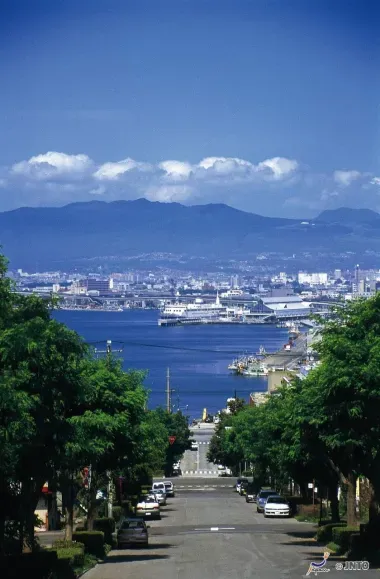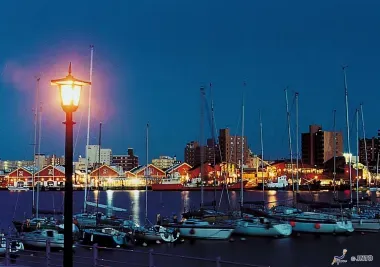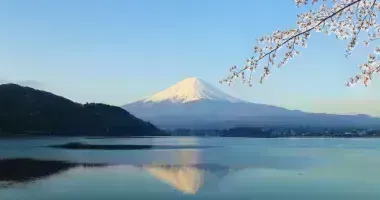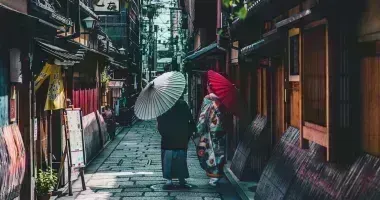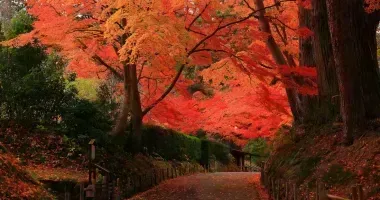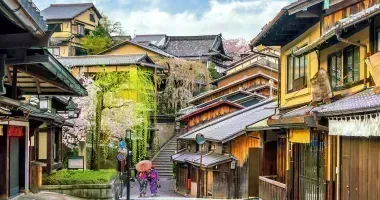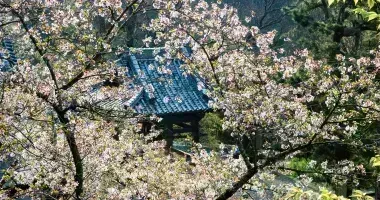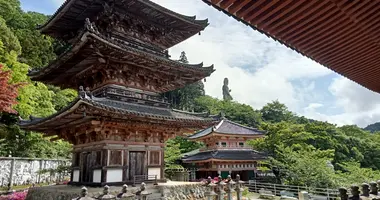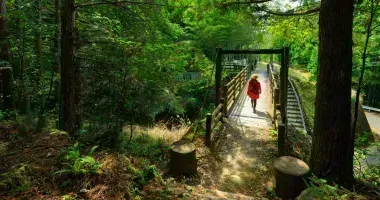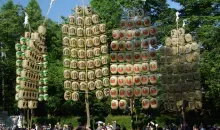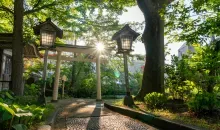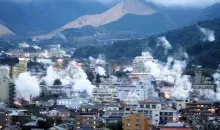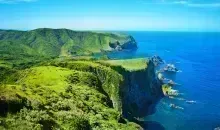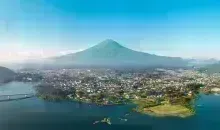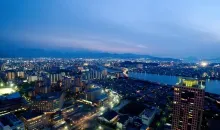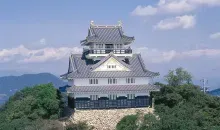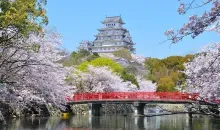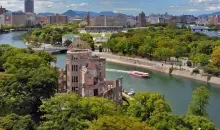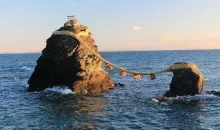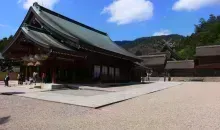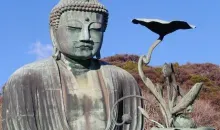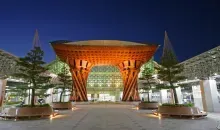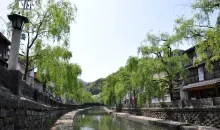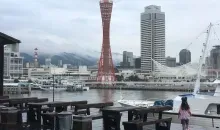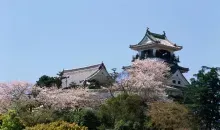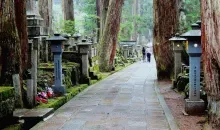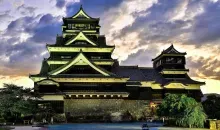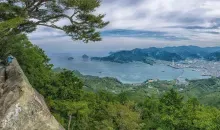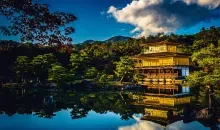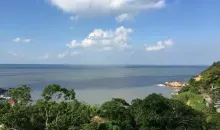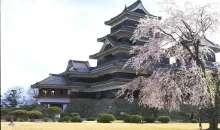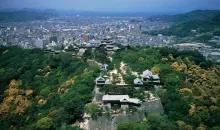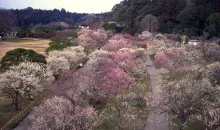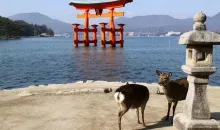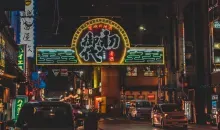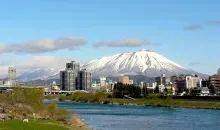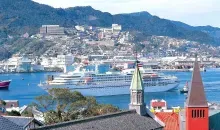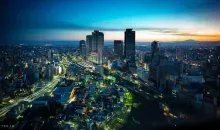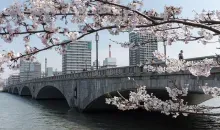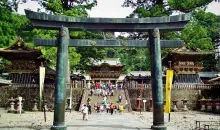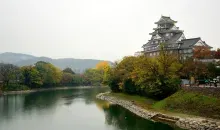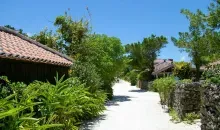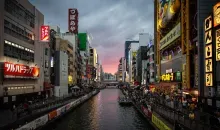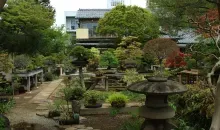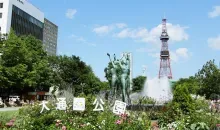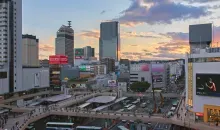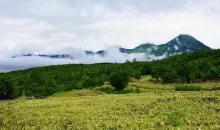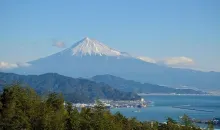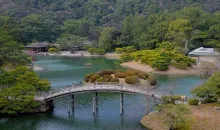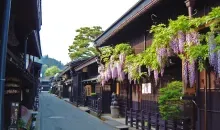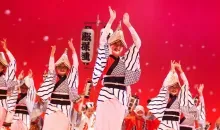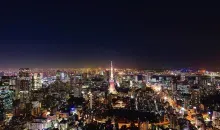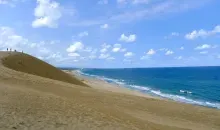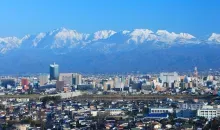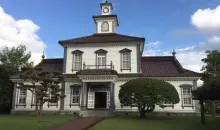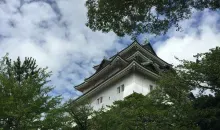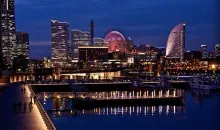Hakodate 函館市
Local Time 03:26
Symbol : sunny
Temp : 8.6°C
Date : Today
Symbol : sunny_cloudy
Temp : 12.1°C
Date : Tomorrow
Symbol : cloudy
Temp : 11.6°C
Date : Friday
Symbol : cloudy
Temp : 14.2°C
Date : Saturday
Local Time 03:26
Symbol : sunny
Temp : 8.6°C
Date : Today
Symbol : sunny_cloudy
Temp : 12.1°C
Date : Tomorrow
Symbol : cloudy
Temp : 11.6°C
Date : Friday
Symbol : cloudy
Temp : 14.2°C
Date : Saturday
Cold but warm
Hakodate is one of Japan's most famous cityscapes. It is also a place known for its unique atmosphere. The winters are freezing, but the summer offers one of the most pleasant climates in the country...
Everything there is to know about Hakodate
Hakodate is the third-largest island city in Hokkaido and is located at the southern tip of Hokkaido, just across the Tsugaru Strait from the main Japanese island of Honshu. The city of Hakodate lies just behind Mount Hakodate, which occupies the eastern tip of Hakodate Bay.
Hakodate has a recent history as it developed in the 19th century as a port open to foreigners. It was the refuge of the last supporters of the shogun, who proclaimed the brief Ezo Republic.
The city's landscape is strongly marked by this era. The city has developed its old red brick warehouses, which are now a favorite meeting place for young people because of their many restaurants. There is also an old district of western houses and wooden churches. The place smells of the Meiji era. Many of Hakodate's famous places are housed in old western-style buildings built during the time when foreigners settled and practiced commerce in the city.
The place is also famous for its super-fresh sushi, especially salmon sushi, and for its local version of ramen: shio-ramen.
- Read also: Hokkaido's culinary specialties
Hakodate is also famous for its scenic views from Mount Hakodate, which overlooks the city, connected by cable cars. The flowery landscape of the park surrounding Goryokaku Fortress - Japan's only western citadel - is beautiful in spring.
Festivals in Hakodate
The city's two major festivals are the Hakodate Goryokaku Matsuri, held on the third weekend of May, with costumed participants celebrating the final battle of the Boshin War in 1868, and the Hakodate Minato Matsuri, held at the beginning of August, with a performance of a squid dance in the shape of waves are enacted by enthusiastic participants in the city streets.
What to do and see in Hakodate?
- Hakodate Morning Market - The morning market (Asa-ichi) opens at six in the morning and is divided into dozens of vendors. The area around the market is filled with small shops and restaurants with seafood stalls. In contrast to the hushed atmosphere inside, hawkers here shout the virtues of their wares to all who pass by in the morning sun. Some shops have signage in Japanese and English saying, "You can eat here!" Virtually all have one or more tables in the back where you can enjoy a seafood donburi (a bowl of white rice topped with one or more kinds of seafood).
- The Motomachi district in the city center has several architecturally renowned churches of foreign denominations. The largest and best known is the Russian Orthodox Church, which was established in 1859 to accompany the Russian Consulate in Hakodate. A Catholic church and an Anglican church are located in the same area.
- For those interested in Hakodate's early history as a treaty port, the Foreigners' Cemetery houses the graves of British, Russian and French expatriates who died in Hakodate.
- The town's old brick warehouses date back to the days when Hakodate was a center of trade to the Western world. Inside, they dazzle with their modern emporium, ranging from a music box "museum" to a teddy bear shop, from jewelry shops to quirky souvenir shops. There are restaurants of different cultures and it's a good place to try some of Hokkaido's culinary specialties, such as curry soup and limited-brew Sapporo beers, available only in the prefecture. The warehouses, of course, face the sea and provide a view of embarkation points for cruises in the bay.
Things to do near Hakodate
- The Abbey of Our Lady of the Angels is a Trappist monastery in the northeast of the city. You can get there by car or bus. Access is limited; you can only enter the square, the chapel, and the souvenir shop. The latter offers Trappist butter, jam and butter biscuits at the lowest prices in the archipelago.
- To the north, Goryokaku, a pentagonal western-style fort, is accessible by bus or tram. (There is no parking.) Goryokaku was built between 1857 and 1864 by the Tokugawa shogunate, and briefly served as the governmental, diplomatic and defensive center of the region. The beginning of Japan's restoration to imperial rule was marked by the final battle between the loyal Tokugawa and Meiji forces at this site in 1869. The restored fortress is now a park filled with cherry trees. At its entrance, a 107-meter observation tower houses historical exhibits, a small café, and a gift shop. The tower offers a panoramic view of the city, watched over by its namesake mountain from the south.
- Mount Hakodate and its panorama - The sunset is the city's other most famous experience. Get to the top of Mount Hakodate by hiking trails, car or cable car and you'll find an observatory. From the top, Tsugaru Strait and Hakodate Bay appear to be an hourglass filled with twinkling lights.
- Twenty kilometers north of Hakodate is the (quasi) Onuma National Park with its mountain lakes. It is easily reached by car or by train via a direct JR line offering a great hike, bike ride, canoeing, or fishing amongst the various lakes.
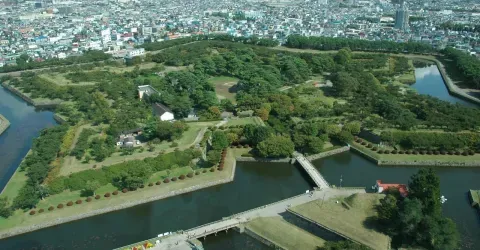
Goryokaku, un fort pentagonal de style occidental
© Y.Shimizu/© JNTO
How to get to Hakodate?
- By train - Hakodate is easily accessible from Sapporo, 260km to the northwest. Hokuto and Super Hokuto trains run approximately every hour from Sapporo Station to Hakodate Station, taking 3 hours and 20 minutes. Trains to the Tomakomai ferry port to connect with ferries to Nagoya and Sendai take 3 hours. There are trains to Aomori, Morioka, and to Tokyo through the Seikan tunnel.
- By Shinkansen train - The Hokkaido Shinkansen runs from Shin-Aomori Station to Shin-Hakodate-Hokuto. From Shin-Aomori Station, the Tohoku Shinkansen is connected to Tokyo. The total travel time from Tokyo Station to Shin-Hakodate-Hokuto is 4 hours and 2 minutes. From Shin-Hakodate-Hokuto to Hakodate Station, the journey takes about 20 minutes on the Hakodate Liner or Super Hokuto Limited Express.
- By air - Hakodate Airport is located 8 km north of downtown Hakodate. Buses take about 20-30 minutes to reach the city center. There are flights from Haneda Airport in Tokyo, Itami and Kansai International Airport (KIX) in Osaka, Nagoya Chubu International Airport, Okushiri Island, and Okadama and Shin-Chitose airports in Sapporo. There are also flights from Hakodate to Taipei in Taiwan and Seoul in South Korea. Teisan buses from Hakodate run to Hakodate Airport in 30 minutes (280 yen).
- By bus - There are regular road buses from Hakodate to Sapporo (travel time about 5.5 hours) operated by Donan Bus Hokkaido Chuo Bus and Hokkaido Kotsu. Buses to Esashi take about 2 hours and 15 minutes.
- By night bus - The night bus from Sapporo Bus Terminal leaves at 11:35 pm and stops at Shin-Hakodate-Hokuto, Nanaecho-narukawa, Kikyo, Showa 4-chome, Goryokaku, Hakodate Ferry Terminal, Hakodate Bus Terminal (5:15 am), Yumoto Takubokutei, and Yunokawa Onsen (5:32 am the next day).
- By ferry - There are regular ferries between Aomori and Hakodate, operated by Seikan Ferry and Tsugaru Kaikyo Ferry, which take between 3 hours, 40 minutes, and 4 hours. Each company operates 8 departures per day with two crossings on the luxury Blue Dolphin operated by Tsugaru Kaikyo Ferry. Tsugaru Kaikyo Ferry also operates a ferry from Oma on the Shimokita Peninsula to Hakodate (1 hour 30 minutes).
How to get around Hakodate?
The Hakodate tram service consists of two lines numbered 2 and 5. The two lines run from the onsen (hot springs) town of Yunokawa and Jujigai to Motomachi, and then split with tram No. 2 running to Yachigashira in the east of Hakodate-yama and No. 5 to the Dokku-mae stop in Hakodate. One-day and two-day passes can be purchased for the trams and buses.
Mount Hakodate - There are buses from Hakodate station to the peak of Mount Hakodate (30 minutes) or you can take the cable car, which is a short walk from the Jujigai tram stop. The hiking trail is open from May through the end of October.
Interested by Hakodate
Discover other cities to explore



